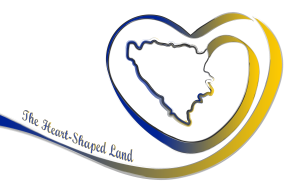Due to practicality there are several kinds of people living in Bosnia and Herzegovina. In whole, there are three nationalities populating the country: Bosniacs, Croats and Serbs.
There are also Bosnians, people with no specific national orientation, except for their belonging to the country they’re from. Bosniacs are mostly Muslims, Croats Catholics and Serbs Orthodox.. In spite of their different religious denominations and ethnic background, their cultures bare more similarities than differences. Their roots go back to the times of the early Slavic tribes who inhabited this country in the 6th and 7th century, mixing with the native Illyrian tribes. In conclusion the people of Bosnia and Herzegovina are southern Slavs, with different religious practices.
According to the last census of 1991, there were 4,354,911 people living in Bosnia and Herzegovina. Due to death and migration caused by war, this number is significantly lower today. The estimated number of people living in the country today is 3.8 million, with the number constantly increasing, while a million more Bosnia and Herzegovinians live outside of the country. The ethnic structure, expressed in percentages, stayed virtually the same: Bosniacs (Muslim) comprise 44% of the population, Serbs (Orthodox) 31 % and Croats (Catholics) 17% while the remaining 7% are Yugoslavs, Albanians, Jews, Romanies and other national minorities.
Socializing with the locals
Ever since the beginning of the war in 1992 thousands of people have come to Bosnia and Herzegovina, among them many humanitarians, members of the peace corps, curious tourists, activists, diplomats, businessmen as well as pilgrims of the Lady of Međugorje. It is unlikely to even be recognized as a tourist in cities such as Sarajevo, Mostar and Banja Luka, where there is a great feeling of an international community. The locals are always friendly and welcome, which is typical for the whole region but the Bosnian hospitality is really something else. The Bosnians will gladly drop their work to offer you a helping hand and more than often even invite you into their home for a cup of coffee. Once you’re a guest in someone’s home you can expect the royal treatment, regardless of their status, you will be wined and dined.
It is an unwritten rule to offer everyone a cigarette before having one yourself. What comes next are the sweets, usually cookies and chocolate, and if the atmosphere befits a homemade brandy served with refreshments. If you’re from the west all of this might seem overboard, but the tradition to treat your guest as one of your own is held in high regard.Most of the younger population speaks the English language, given that it is taught in schools. American movies are very popular, also aiding to the learning of the language. In western Herzegovina and northern Bosnia a considerable number of people speak German; over 300,000 refugees lived in Germany during the war with many emigrating there even before the outbreak of the conflict.
In most cases the young citizens don’t find interest in talking about the war or politics, they’d rather discuss music, movies, bookies or simply chit chat. The older generations are usually the ones to bring the topics of war and politics into conversation. As a visitor in Bosnia and Herzegovina you will notice various types of lifestyles, such as women who still decide to dress accordingly to tradition or even cover themselves. That doesn’t set them apart because Bosnian hospitality knows no boundaries.


